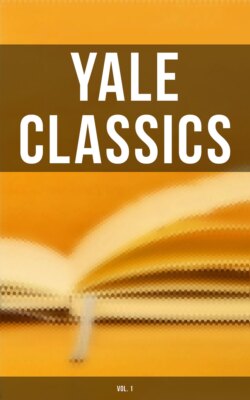Читать книгу Yale Classics (Vol. 1) - Anacreon - Страница 137
На сайте Литреса книга снята с продажи.
The Life and Work of Alcman
ОглавлениеTable of Contents
The name ALCMAN is the Doric for Alcmæon, and the bearer of it was a Laconian from Messoa (circa 615 B.C.). But Athenian imagination could never assimilate the idea of a Spartan being a poet. In the case of Tyrtæus they made the poet an Athenian; in that of Alcman, some chance words in one of his poems suggested that he or his ancestors came from Lydia. Hence a romance -- he was a Lydian, made a slave of war by the wild Kimmerians, and sold across seas to Sparta, where his beautiful songs procured him his freedom. Alcman is very near the Lesbians; he speaks freely in his own person, using the choir merely as an instrument; the personal ring of his love-passages made Archy+̂tas (4th cent. B.C.) count him the inventor of love-poetry; he writes in a fresh country dialect, as Sappho does, with little literary varnish; his personal enthusiasm for the national broth of Sparta is like that of Carlyle for porridge. His metres are clear and simple; and the fragment imitated by Tennyson in In Memoriam shows what his poetry can be: "No more, oh, wild sweet throats, voices of love, will my limbs bear me; would, would I were a ceryl-bird, that flies on the flower of the wave amid the halcyons, with never a care in his heart, the sea-purple bird of the spring!"
His longest fragment is on an Egyptian papyrus, found by Mariette in 1855, and containing part of a beautiful 'Parthenion,' or choir-song for girls. It is a dramatic part-song. When we hear first that Agido among the rest of the chorus is like "a race-horse among cows,"and afterwards that "the hair of my cousin Agesichora gleams like pure gold," this does not mean that the 'boorish' poet is expressing his own intemperate and vacillating admirations -- would the 'cows' of the choir ever have consented to sing such lines? -- it is only that the two divisions of the chorus are paying each other compliments. This poem, unlike those of the Lesbians, has a strophic arrangement, and is noteworthy as showing a clear tendency towards rhyme. There are similar traces of intentional rhyme in Homer and Æschylus;5 whereas the orators and Sophocles, amid all their care for euphony in other respects, admit tiresome rhyming jangles with a freedom which can only be the result of unsensitiveness to that particular relation of sounds.
5 Sept.778 ff., 785 ff.
